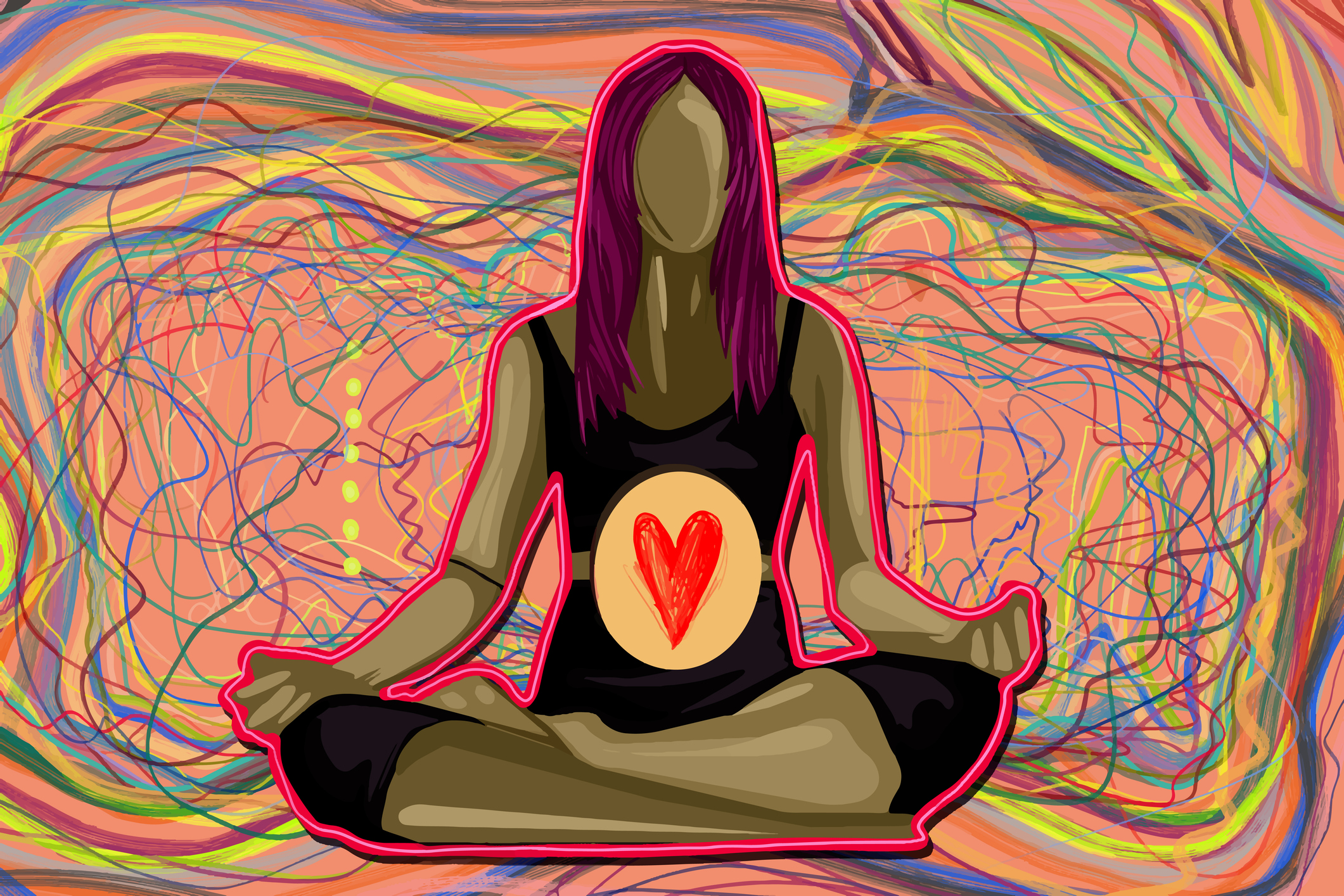In the 1800s, a French Canadian named Alexis St. Martin was shot in the stomach while at a fur trading post, when someone’s musket accidentally fired at close range. He survived, but his injuries resulted in a hole in his stomach wall. This provided an early window—literally—into how our emotions and mental health affect the gut. Through careful experiments, the surgeon William Beaumont discovered that St. Martin’s mental state had direct physiological consequences on his stomach’s activity: when he felt irritable, for example, his digestion slowed. Somehow, his emotional states were manifest in the specific, local biology of his gut.
Most people have experienced the gut consequences of their emotional feelings. Nerves before an exam might lead you to feel nauseous or even vomit. Profound sadness might make you lose your appetite, or perhaps cause a hunger impossible to satiate. Gut symptoms are common in mental health conditions, from appetite changes in depression to debilitating “psychosomatic” stomach pains. Many of our feelings are gut feelings.
But the gut doesn’t just respond to emotional feelings: it influences them, too. Take disgust. Disgust is visceral. Our stomach, like our heart, has a regular electrical rhythm; even just seeing something disgusting causes disruptions, called “dysrhythmias,” in this electrical signalling. Although disgust is crucial for survival—helping us avoid disease and stay alive—in many mental health conditions disgust becomes pathological. In obsessive compulsive disorder (OCD), for instance, dirt or germs can preoccupy someone’s thoughts, causing symptoms like compulsive hand-washing. Self-disgust is common in depression and eating disorders. And even post-traumatic disorder can be brought on by profoundly disgusting traumas.
Pathological disgust is particularly hard to treat: exposure therapy and other psychological approaches are much less effective than for fear-based mental health problems. A couple years ago, working as a neuroscientist at the University of Cambridge, I wondered if abnormal signals from the stomach could be causing disgust avoidance. I ran an experiment to test this hypothesis, and found that changing someone’s gut activity with a common anti-nausea drug reduced their disgust avoidance. This could represent a new way of treating pathological disgust in mental health disorders. For example, an anti-nausea drug could be administered just before exposure therapy, enabling patients to engage with therapy under a more optimal gut state.
Read More: How I Learned to Listen to What My Gut Was Telling Me
So gut feelings are not “all in your mind”—but they are not “all in your gut,” either. Sensations from the gut are transmitted to the brain via the vagus nerve, the primary channel of information sent from the body to the brain. A second route to target “gut feelings” is by electrically stimulating this nerve, which changes the electrical rhythm of the stomach. That said, the idea is not new: vagus nerve stimulation for patients with major depression dates back to 2000.
A new theory published in November 2023 proposes that vagus nerve stimulation amplifies signals from the internal body to the brain, which helps us adapt our behaviour to its current challenges and needs. That could explain why the effects of vagus nerve stimulation are so wide-reaching, altering learning, memory, and motivation. That means amplifying signals from the gut using vagus nerve stimulation might improve mental health in some cases, but in others could be ineffective or even detrimental. Ultimately, we need to consider the state and needs of someone’s internal body before amplifying the body’s influence on the brain.
But the importance of the vagus nerve extends to even more established treatments: evidence from mice suggests that the most common type of antidepressant drugs (SSRIs, or selective serotonin reuptake inhibitors) require the vagus nerve to work. This, too, could begin to provide clues why antidepressants do, or don’t, work for a given person, and even help us understand why they might cause side effects in some people.
If the vagus nerve’s role helps us adapt to our bodily needs, perhaps the most important internal need of all is energy. One function of the gut—together with other organs—is metabolism, converting food to energy the body can use. There are mysterious and wide-ranging connections between our metabolic system and mental health. For example, the prevalence of depression in people with diabetes is two or three times higher than in the general population. It’s not clear why: diabetes could increase depression risk, or vice versa. My lab is currently testing a third possibility: that common metabolic factors might increase your risk of both depression and diabetes because of interactions between the body and the brain. If we’re right, this could open up avenues toward metabolic interventions that improve both physical and mental health.
Our brain and wider nervous system adapts to its circumstances, including the body’s internal, metabolic needs, as well as our experience of the environment around us. Because of this, your gut-brain connection is not static, but rather changes and adapts over time. A fascinating study in 2021 discovered that brain cells can re-activate gut inflammation that an animal has previously experienced. The mere “memory” of gut inflammation, stored in cells in the brain, induced the physical state in the body. So sometimes a “gut feeling” actually originates from the brain. This role of the brain in “gut feelings” means our brain has the capacity to produce dysfunctional gut symptoms via brain changes alone. This ability of the brain could have upsides as well, perhaps explaining why psychological therapy—which causes brain changes—can also treat some gut conditions.
Gut feelings originate from many sources: directly through the gut, through channels of communication between gut and brain, or even through the brain itself. In neuroscience, as we unravel the dynamic communications between gut and brain, we can begin to understand how these processes helped our ancestors survive—and how we could better harness them to improve emotional and mental wellbeing. A gut feeling might have many possible causes, but each of these represent a potential solution for mental health.

